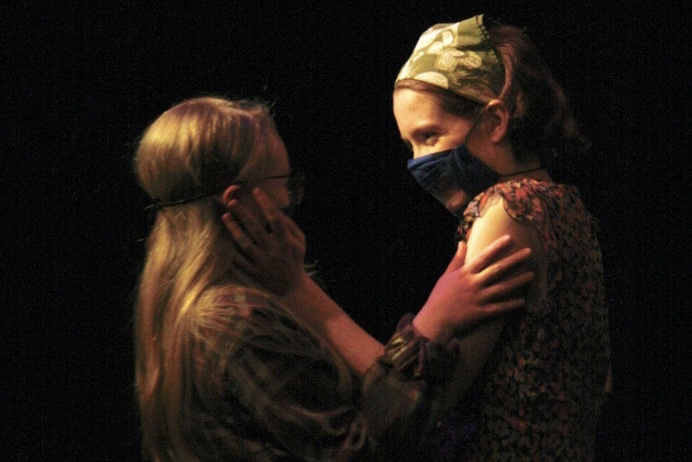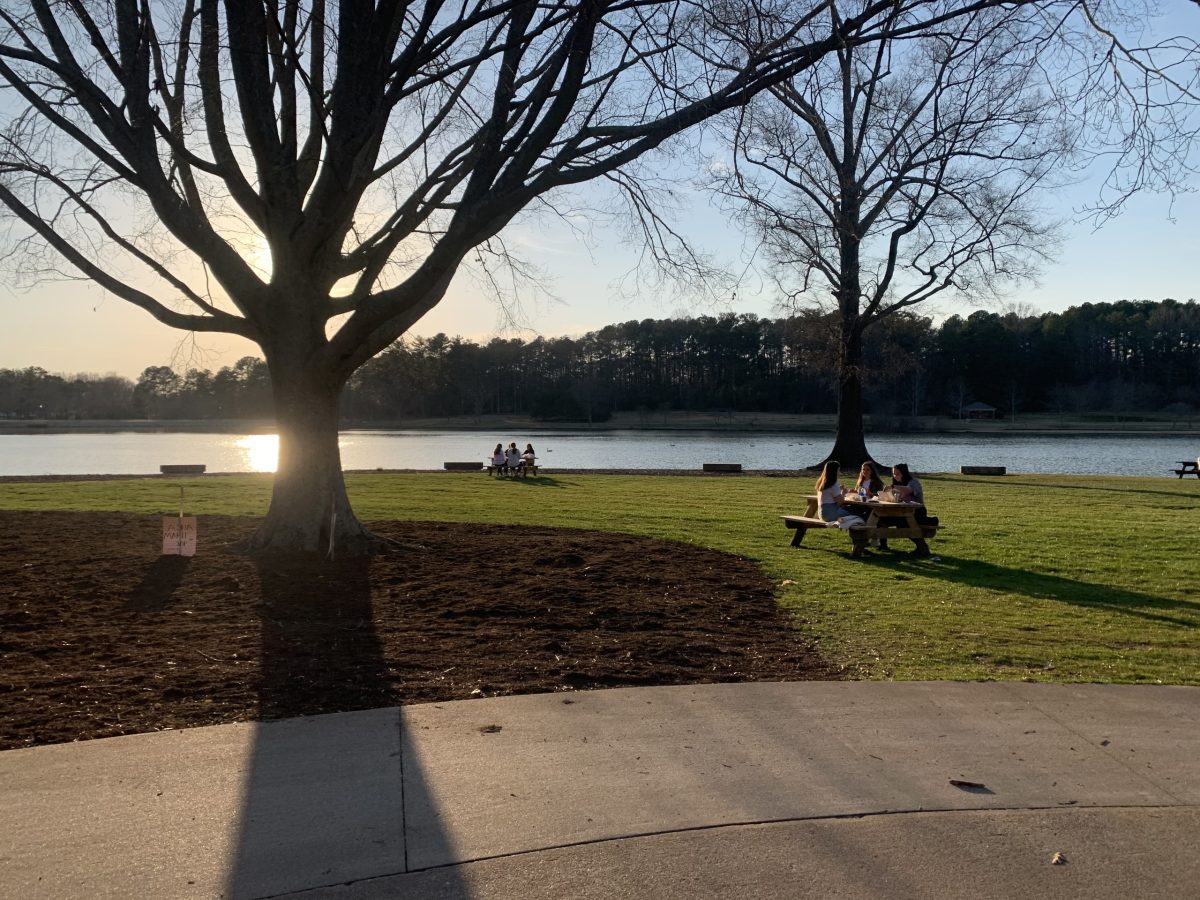As the coronavirus pandemic began to sweep across the United States last spring, Furman closed its campus, forcing all academic departments to redesign their curriculum and finish their semesters completely online. For some departments, this remodeling was more difficult than others. The theatre arts department in particular had to think outside the box in order to continue their Main Stage Season.
Instead of cancelling their ongoing production, the theatre arts department held its first Zoom show, The Wolves, on March 31. The Wolves was originally designed to be performed in front of a live audience in the Playhouse. Junior Emily Enlow was an actress in The Wolves and shared how emotional the experience was to limit a show that was supposed to revolve around soccer and physical activity to stagnant faces on a screen. Enlow said, “we lost that physical closeness that was so essential for the show… theatre is about connection and connecting with people in a way that is based in the energy of the space you’re in. It’s an ephemeral thing.”
Even now, as we enter into our fall semester, physical closeness remains both a danger and an impossibility, and the theatre arts department must continue to sacrifice many elements of the art form that makes live theatre what it is. In order to continue producing their shows this semester, the theatre arts department has stopped relying on the proscenium stage in the Playhouse and begun to reimagine what virtual theatre and live performance could look like during this time. Options they are exploring include filming and streaming their shows via Zoom, or having outdoor performances that would combine both live performance and recorded videos.
The first show of the season, Carol Churchill’s Love and Information, is planned to be performed outdoors so that all actors and audience members will be comfortable and safe. The play includes a collection of random scenes meant to be interspersed in between 7 acts. The director, Maegan Azar, has cast each act to have two to three actors, and the audience will move in small groups throughout the acts in the style of medieval promenade theatre. The random scenes will be pre-recorded and made accessible to the audience as they travel between each act. This will give the audience an autonomous live theatre experience while also ensuring their safety. As this show has just begun its creative process, there is still much uncertainty, but the cast and crew are already working hard to ensure that this show will be brought to fruition in some capacity.
There are more unknowns for the second show of the season, Charles Aidman’s adaptation of Edgar Lee Masters’ Spoon River Anthology, as the climate on Furman’s campus is continually changing and uncertain. However, the director, Rhett Bryson, has stressed that he sees this show working well whether it’s in person with a small audience or whether it’s a completely virtual experience. The play is composed of free verse poems that tell the story of the small town, Spoon River, from its resident’s varying perspectives. The actors will all play multiple characters and there is no required physical intimacy among the cast, allowing for safe performing and rehearsal, if held in person.








































